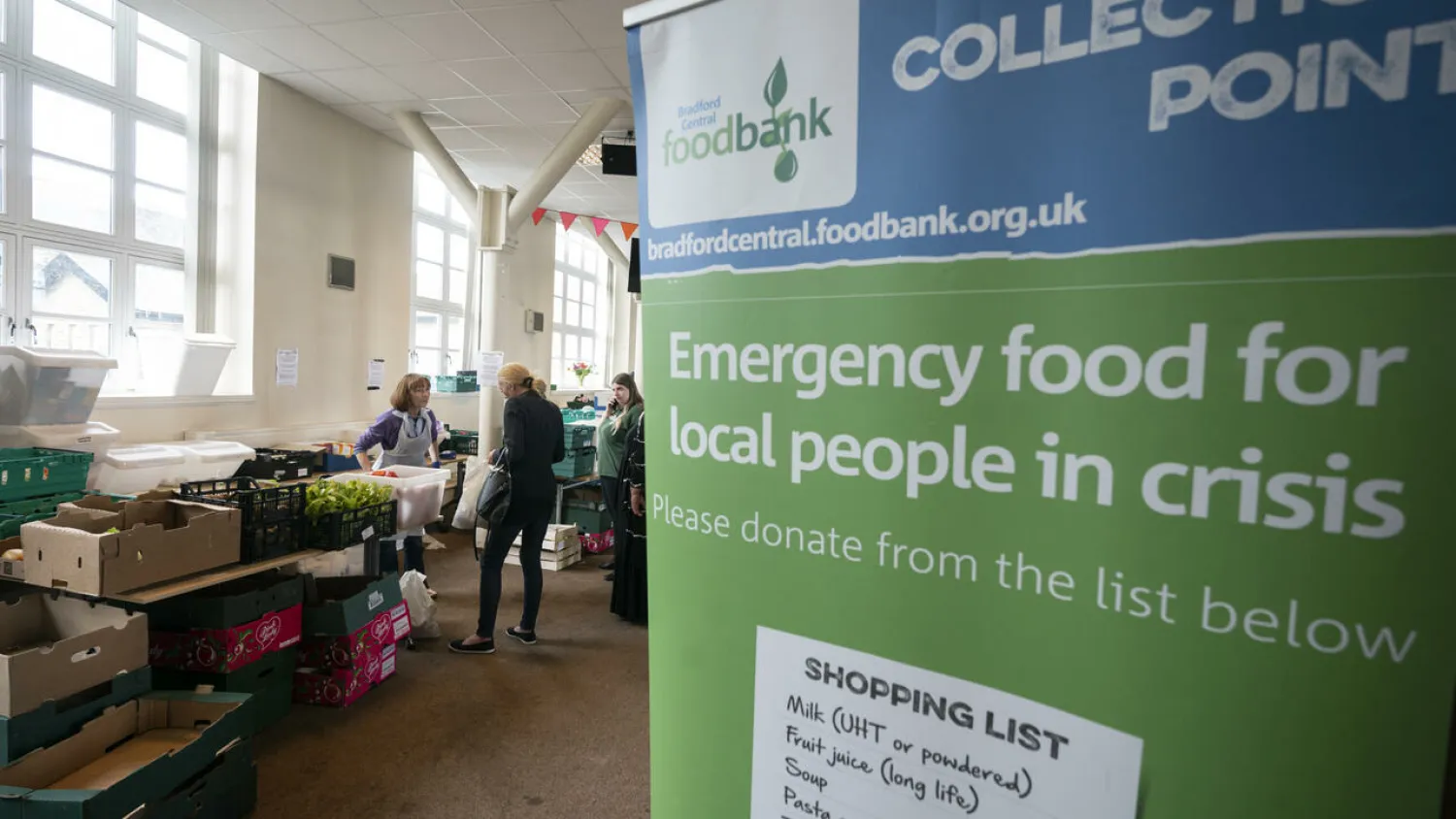On an overcast morning in Bradford, northern England, a steady stream of locals arrive at a foodbank to collect produce parcels described as "a lifesaver" during the worst cost-of-living crisis in a generation.
Bradford Central Foodbank is helping twice as many people compared to pre-pandemic, as spiraling prices for energy, food and other basics leave a growing number of Britons struggling, AFP said.
"The numbers since I've been a volunteer have only multiplied and I can only see it getting worse," said Karl Carroll, 33, who has relied on the parcels since 2019 and is now volunteering at the foodbank.
"I've barely got £40 ($50, 47 euros) by the time I've paid everything out, so I imagine families are struggling in more ways," he told AFP.
Simon Jackson, 43, an unemployed former supermarket worker who is accessing long-term government sickness benefits, has been a foodbank user since February.
"It is a tougher time at the minute... the cost of living's skyrocketed to a point of we're having to use foodbanks a bit more," he said.
Jackson currently gets around £900 a month in various government support payments but, like Carroll, once his bills are paid, there is little left over for food.
Rising prices are exacerbating the situation.
"Places like (this) here in Bradford are a lifesaver. They can really help balance your decisions -- sometimes between the heating and eating," he said.
- Survival -
One of the clearest signs of the crisis is the surge in foodbank use.
The Trussell Trust charity says its more than 1,400 affiliated sites handed out 2.1 million parcels in the past year -- 830,000 of them to children -- in a 14 percent increase on pre-pandemic levels.
Its central Bradford operation is hosted three days a week by a local church organization, and can supply people with only three parcels within six months to manage demand.
They contain basics such as cereal, tinned soup, meat and fish, pasta, sauces, vegetables, biscuits, sugar, tea and coffee.
Started in 2011, it is one of around 30 free food providers now in the city of just over half a million residents, and currently helps around 1,000 people a month, said manager Josie Barlow.
Greater Bradford's population -- the sixth biggest metropolitan area in England -- is the fifth most income-deprived and sixth most employment-deprived nationwide, according to the government's last poverty index published in 2019.
That leaves it particularly vulnerable in the current climate.
"It's people that are on the lowest incomes that'll suffer the most... they have to buy the essentials but they're the things that are really going up by a lot," Barlow explained.
She greets arrivals with a warm smile and upbeat energy, directing them to collection tables as well as welfare, housing and other advisors.
"We want to give a food parcel, but we also really want to help people with the root causes of their food crisis," Barlow noted.
She said they receive "a whole spread of society", which includes working as well as unemployed people.
"You do a budget with people and you're like: 'yeah, you just can't live on that, can you?' And there's no real way out of that," she added.
"You can't expect people to live like that, in crisis, just trying to survive in the long-term."
- Winter fears -
The government announced Thursday a new £15 billion support package aimed at the most vulnerable, ahead of an expected 42 percent jump in energy bills in October -- which follows a 54 percent hike last month.
Three-quarters of the money is directed at government benefits recipients, with a £650 "cost-of-living payment" to most alongside £300 for pensioners and an extra £150 for those on disability support.
But in Bradford, as elsewhere, it cannot allay fears that worse to come.
The current nine percent inflation rate is predicted to surge even higher, which would swamp any additional support.
"I'm quite scared by this winter coming up," admitted Barlow, noting summer allows people to get by without heating.
"Come this winter, when you really do need it on... I just don't know how people are going to survive."
Jackson predicted the biggest squeeze could come at Christmas, as families in particular grapple with giving presents as well as putting food on the table.
"It might not be so much for me, because I'm on my own -- I'll just put an extra blanket on or something," he said.
"But for those with small kids that have Christmas presents and other needs... it's really going to be tough."
Simone Hillhands, 34, is one. She has three children aged 10, 13 and 15. One of them has a disability, which prevents her from working full time.
Her children's school directed her to the foodbank.
"I need to care for them," she explained.
Reluctant to reveal too much of her personal circumstances, Hillhands confided that her sister had recently been made homeless and the wider family's situation was "really, really hard" with prices rising.
"They've gone through the roof... it's crazy!" she said, adding that despite the pandemic, "last year was a lot easier".









